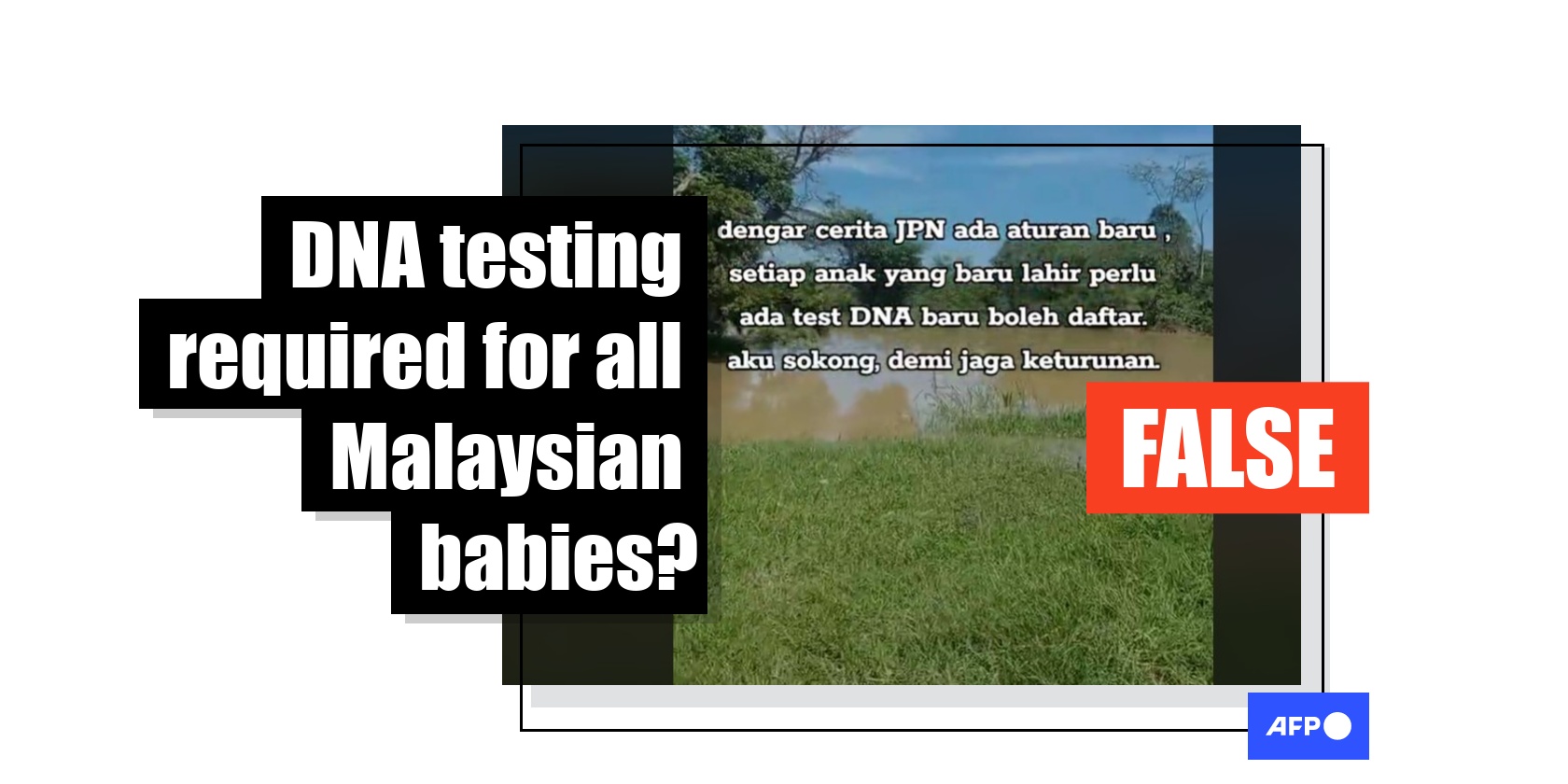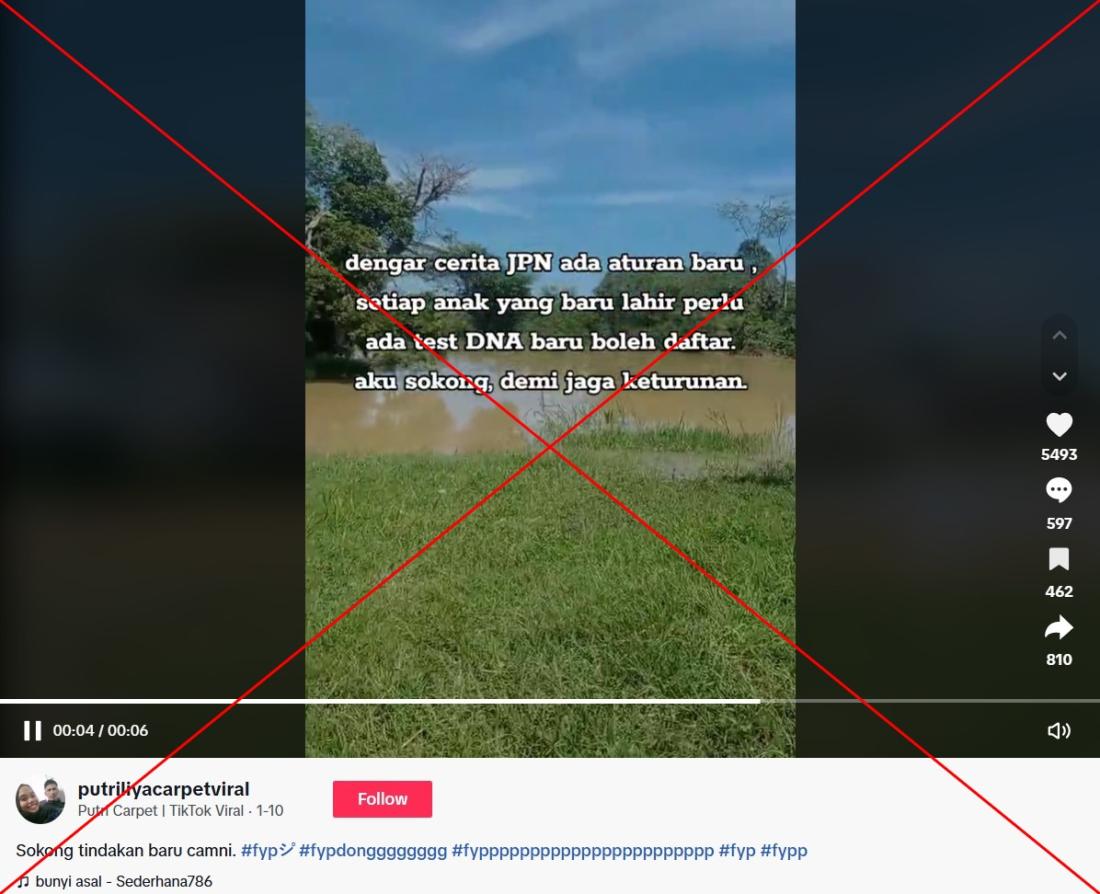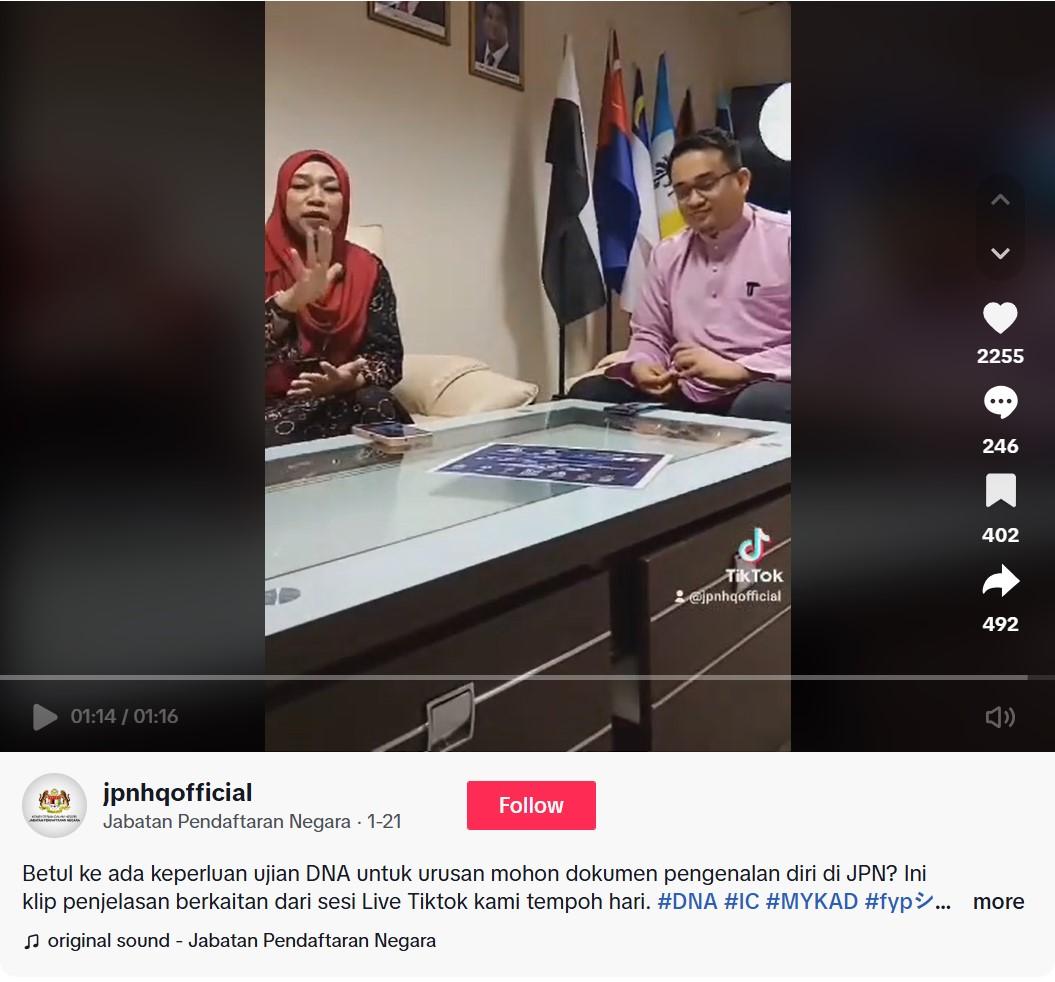
Malaysian authorities say DNA test only prerequisite for birth registrations in specific cases
- This article is more than one year old.
- Published on February 7, 2025 at 08:41
- 2 min read
- By Najmi Mamat, AFP Malaysia
"Hearing that JPN has new rules, all newborns must have a DNA test before they can be registered. I support this to protect family lineage," reads Malay-language text on a TikTok video viewed more than 310,000 times since it was posted on January 10, 2025.

Similar claims were shared elsewhere on TikTok and Facebook here, here and here, in posts that racked up more than 4.5 million views.
Malaysia requires all births to be registered within 60 days by a parent, legal guardian, person with knowledge of the birth (archived link). In the case of children born to unmarried parents, registration needs to be completed by both the mother and father.
JPN's official website lists the documents required for registration, which includes an application form, hospital or doctor's note certifying the birth and maternity records. It also requires identification documents of both parents or death certificates if applicable, as well as marriage or divorce certificates.
It does not list a DNA test as a requirement.
JPN spokespeople also rejected the false claim in a video posted on its official TikTok account on January 21 (archived link).
"We only ask for a DNA test in specific cases, not for all births and not for all identity card registrations," one of the spokespersons said in the video.

JPN requests DNA testing in situations when conflicting information is detected in a birth registration application, or in cases when the application requires a different individual to act as a guardian and genuine familial ties must be established, a spokesperson from the department told AFP on February 6.
"These kinds of situations can be categorised as doubtful information and require further investigation before identification documents can be issued," the spokesperson said.
Copyright © AFP 2017-2026. Any commercial use of this content requires a subscription. Click here to find out more.
Is there content that you would like AFP to fact-check? Get in touch.
Contact us
